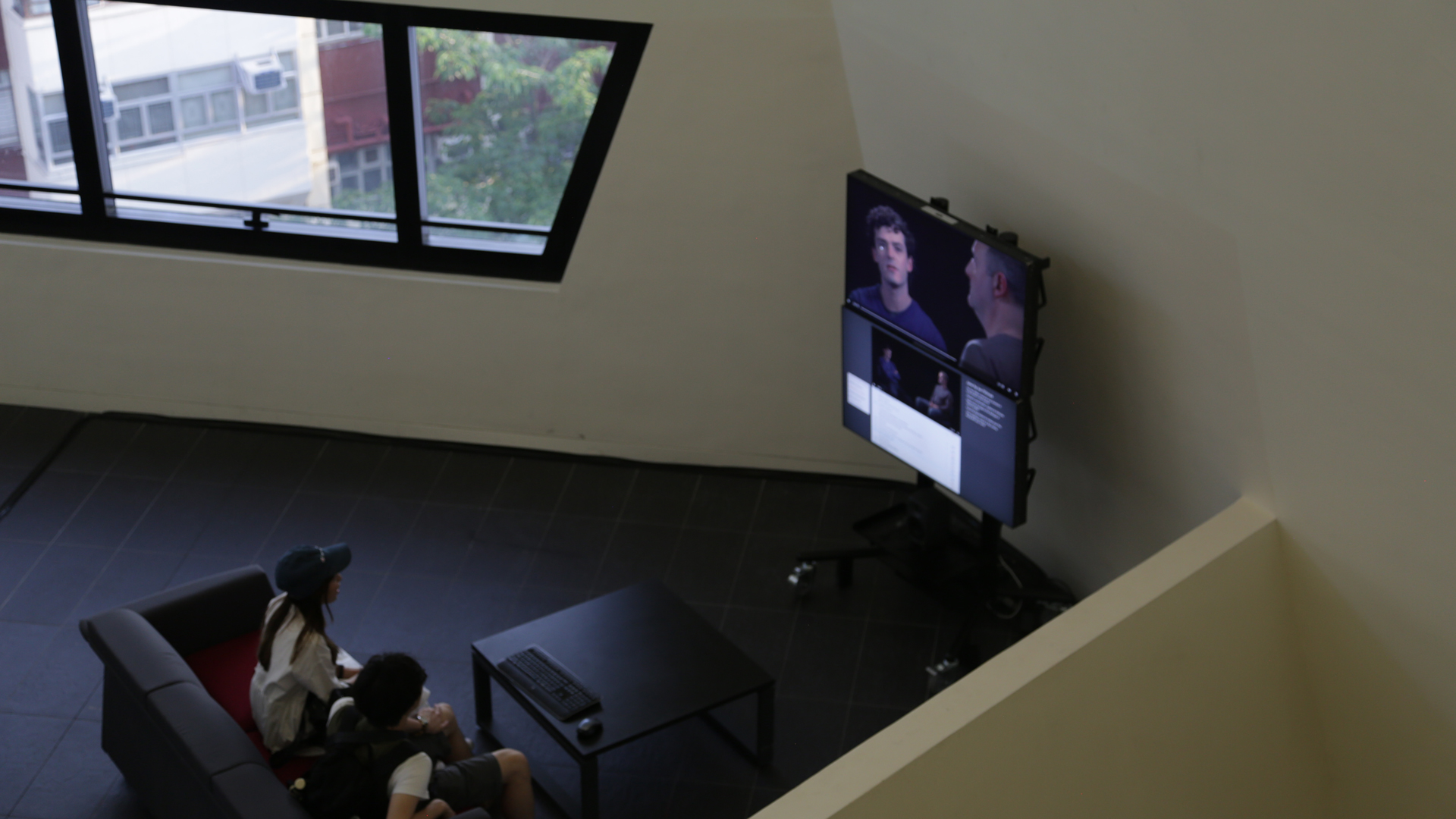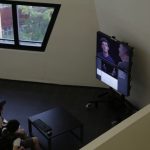“Jane” by Ian Flitman
Title:
- Jane
Artist(s) and People Involved:
Exhibiting Artist(s):
Symposium:
Venue(s):
Creation Year:
- 2015
Medium:
- Single/two channel installation
Duration:
- Videos between 3 and 5 minutes each
Artist Statement:
Jane is a dialogue for two actors that you can change throughout while maintaining credible meaning. There is no definitive version, no directors cut. It is rather the sum of its manifold possibilities. The work in many ways belongs to the theatre with its black box setting. And it owes probably more to work of Samuel Beckett than anyone else. At its strange heart the piece is a writing automaton. It chooses what the algorithms decide for it against the carefully calculated script.
The situation is absurd. John and Jake talk about a woman they share called Jane. Both, more than coincidentally, are married to a woman called Jill. The men exhibit no rivalry whatsoever over Jane. They know she belongs to everyone and no one. Jane is simultaneously a daydream and a nightmare. Shape-shifter extraordinaire, she is the constantly mutating remainder of male desire. Whatever men crave and fear in the female sex, Jane exemplifies and amplifies. Jane herself knows full well that she is the empty heart of desire for she is the absence that gives birth to desire itself. In a very concrete sense, Jane could only be expressed in something as fluid and pliable as the work that takes her name.
John and Jake too are rather ambivalent. They can be read as individuals or the same person separated by the attrition of time. Taken as individuals, John is the older, more jaundiced and stoic of the pair. He is also probably happier or at least more accepting of his marriage and its inevitable compromises. Jake is the more idealistic and yet the more troubled too. He bears the burden of a sexual ambiguity both in himself and the troubled relation his wife has with her father. Originally I had in fact planned a companion piece called ‘James’ where the wives called Jill would similarly fantasize and fear. There I was also entertaining the possibility of the intriguing male to female interweavings that could ensue.
Jane is also about itself or rather the types of story that something like Jane can tell. I tried to get the most out of the line by line granularity of change by investing the alternatives with as much narrative content as they could hold. One way was to use the well known films in the conversation ‘Old Films, New Endings’ and thereby leverage, extend and subvert narratives already known by many. The conversation ‘Bedtime Stories’ does much the same, and harkens back to our childhood need for night time narrative that like cinema unfolds itself in the dark. In ‘Filmic Fantasies’, I evoke actors throughout and use their names to conjure the clouds of narrative allusion associated with each. And then there is Jane. Of her occupation we know that it was once something cinematic: director, actress, editor, and auteur.
In other interactive stories that are varieties of choose-your-own-adventure, the main narrative branches at key decision points. Progression then leads to a normally limited set of outcomes. I eschew this approach and use instead variants that have localized polyvalence. This creates a cumulative field of multiplying nuance where one change can directly or indirectly affect the rest. Alternatively, I also allow for the absence of any interaction like you normally would expect in the passively received medium of film. You can simply auto-generate a film and play it without changing a single line or camera angle; you can dictate the script or be dictated to.
All this does mean that the narratives I produce are less directed than other approaches. The films you see in Jane are therefore more like vignettes than conventional stories that end in a tidy little knot. They are the equivalents of the groundhog day conversations we engage in daily with others or ourselves and upon which we gently improvise in a meagre exercise of will.






